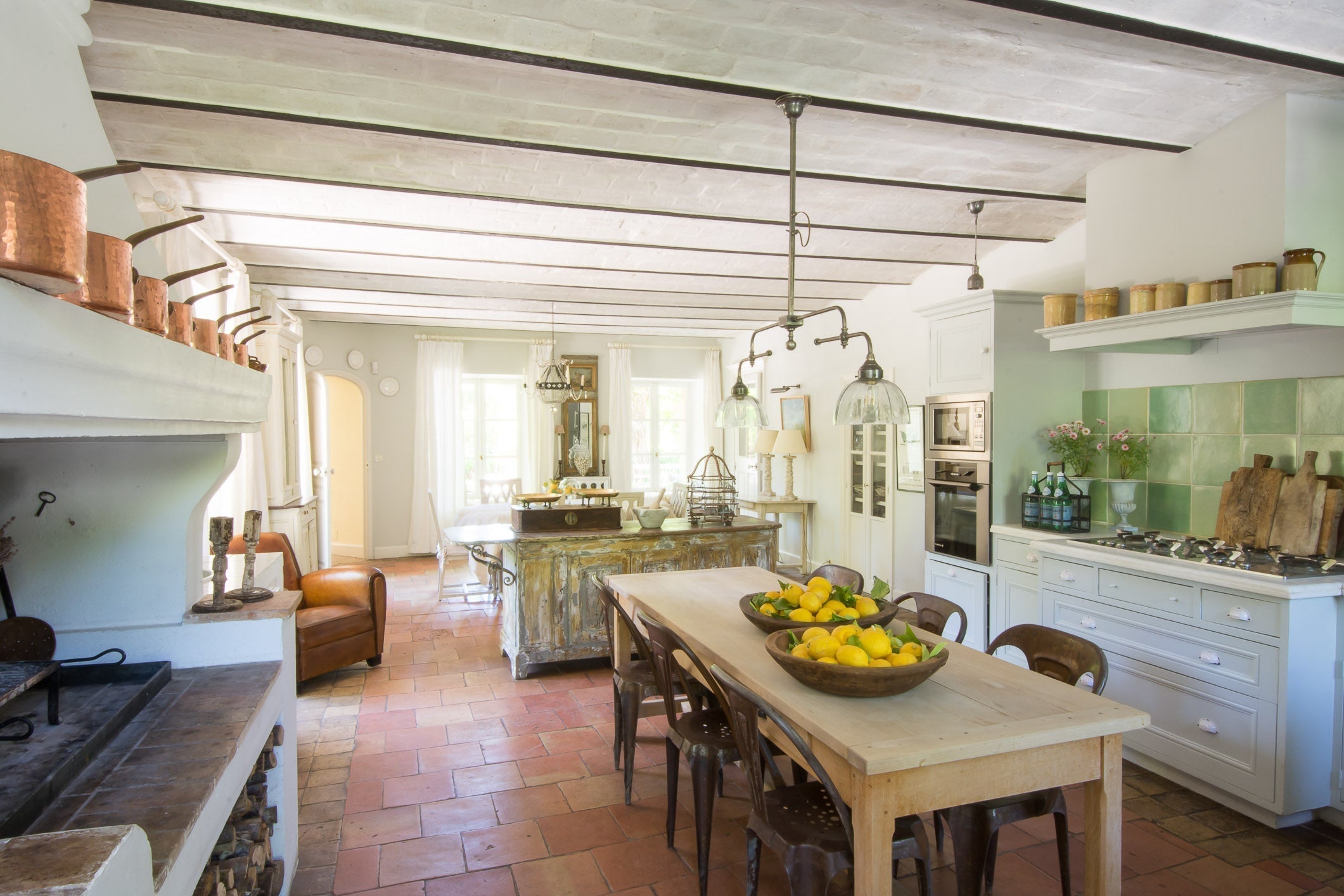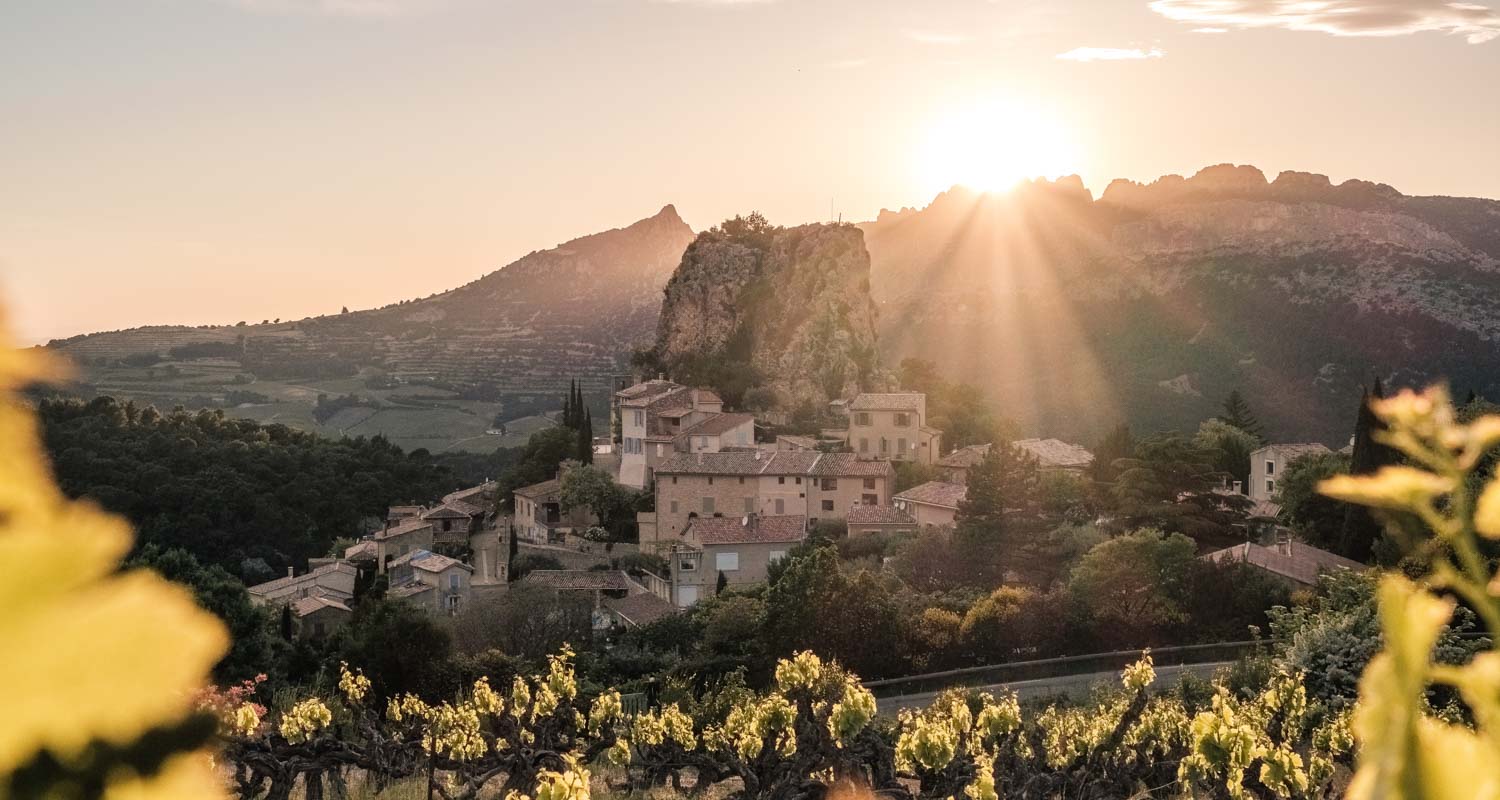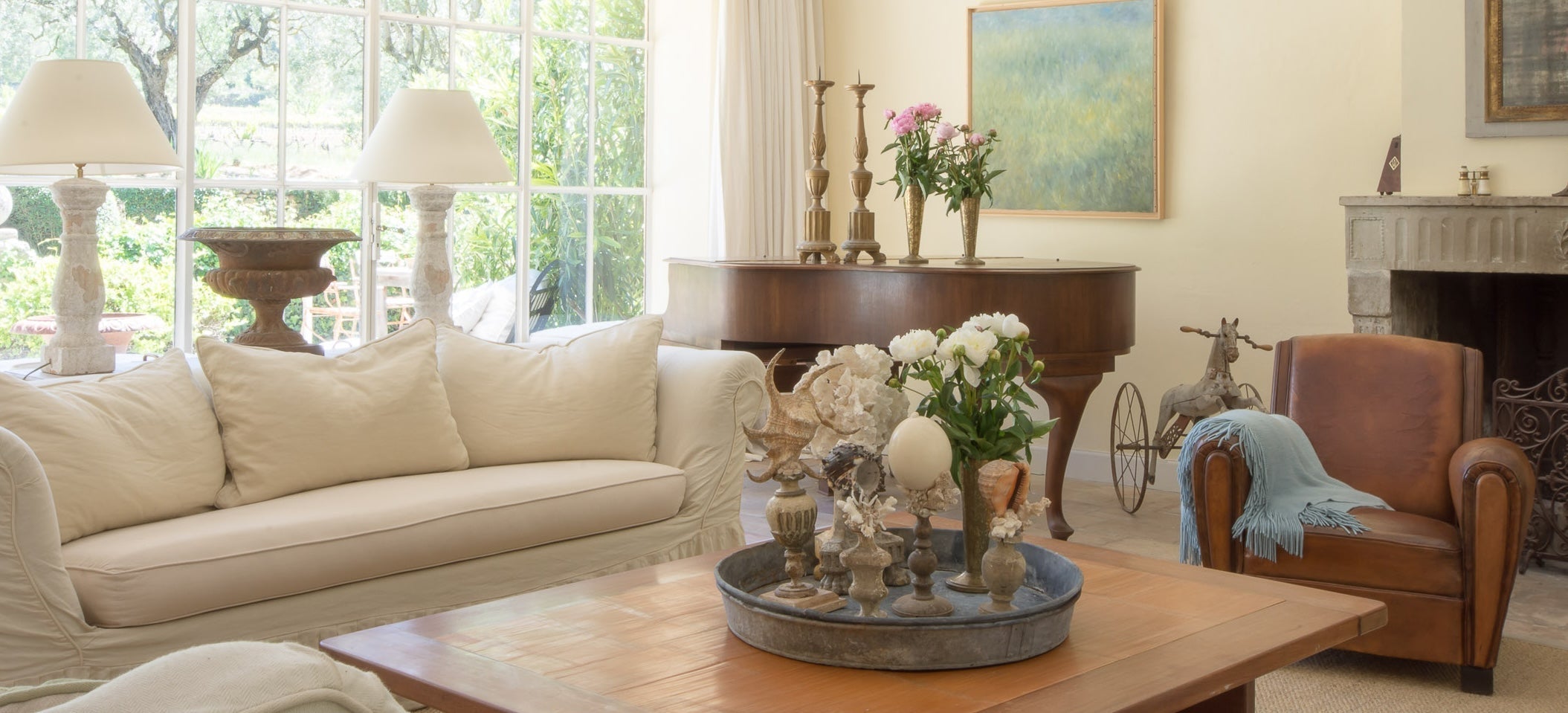
Styling your Country Kitchen with Culinary and Kitchen Antiques
French style country kitchens share one fundamental characteristic – the collected aesthetic. The kitchen is arguably the most satisfying room to style and decorate; an organic process that changes with the seasons.
The kitchen is a space for gathering and entertaining – the emotion created in this area will inform the rest of the home. It is the perfect place to re-purpose found objects with ingenious new uses.
Many interior designers loves the collected look; and accessorize kitchens with vintage linen dish towels and cutting boards with nostalgic effect. As well as vintage plates hanging on the wall and old copper pots hung from an attractive pot rack. We have a beautiful selection of plates, copper pots, linens, and French tea towels, and even a French cotton tablecloth in its original box with serviettes, never before used.
Wire and wicker baskets and ceramic egg pots can be used to cleverly display eggs. If you are fortunate enough to have chickens, (or a friend with chickens), the colorful speckled eggs should last for a month in a basket without being refrigerated and add a decorative farmhouse touch to the kitchen.
Vintage French signs are a charming way to enhance a room like a kitchen or a bar area; just seeing the French script and graphics brings a little piece of France into your life, especially if you are a Francophile. Our collection of vintage signs includes a French Mid-Century butcher shop sign with the perfect script with green drop shadow, and you can change the price of meat with chalk.
A nineteenth-century French lantern retrofit with an Edison bulb could hang above your kitchen island or use candles inside for soft lighting. Maybe there is a spot for old French sconces in an area where you have a desk or a breakfast nook.
Baskets and wooden troughs can be used artfully to present citrus or rolled dinner napkins with flatware ready to dine alfresco for when you are entertaining. Having elegant silver plated 1930’s tea strainers will always come in handy for high tea. These are the little creative touches that add comfort and character to your home. Usable antiques enliven your space and are sure to spark the curiosity of your guests. Original antiques are far more inspiring than bland reproductions.
The confit pot has a fascinating history for culinary enthusiasts, especially if you love cassoulet; and how the confit pot was used before refrigeration. Confit means to preserve cooked meats, mostly confit of duck or goose with the fat; Confit d'oie or confit de canard were considered delicacies. The confit pot would be kept in the cellar or buried to be kept cool. The luminous yellow ochre glaze is the line where it was to be buried.
Occasionally you will find confit pots in a brilliant emerald green color, but mainly you see them in the warm yellow ochre.
They make quite a statement displayed en masse on open shelves or as a vase with foliage like eucalyptus branches or other floral arrangements.
Demijohns are another popular item collectors seek for their great beauty and elegant lines, especially if you can find the bulbous green bottles. They are often used to show off branches of forsythia or dogwood blooms.
Smaller yellow ochre pots that stored preserves can serve many uses besides being decorative. Another way to use them is to hold everyday items or to create small bouquets. They look especially delightful grouped in open shelves. Ceramics from Vallauris Golfe-Juan, a city known for 100 potters, has a rich history, notably from the sixteenth-century when Italian families from Genoa settled here after a deadly epidemic. Picasso moved there in the early twentieth-century. In the 1950’s and 60’s, ceramics became more of an art form because of the Massier family, who were potters dating back as early as the French Revolution. The Massiers developed the luster metallic glaze that you see on the green glazed Dieulefit Hors-d’oeuvre plates.
Another famous potter from Vallauris is Grandjean Jourdon, and he taught his son Eugene to be a potter. Eugene Jourdon created the Faux Bois ceramics that look as if they are carved from wood. They would be the perfect conversation piece for a Mid- Century or Modern kitchen. This particular style of Grandjean Jourdon ceramics is highly collectible with its sleek design.
Bread and cheese boards look interesting together in a collection in different sizes and styles, and when guests show up, you can make a beautiful spread on them with cheeses, bread, figs, olives, and nuts, which adds even more rustic character with a worn board.
If you have a large kitchen island, a set of antique French kitchen scales is a lovely decorative piece to display. They can be filled with knobby walnuts or dried chilies – it will look like a still life painting!
Antique marble mortar and pestles are quintessentially French and are too beautiful to hide away in a cupboard. They can be used for grinding fragrant spices or preparing a pesto sauce. They are a perfect counter-top decoration for both modern and traditional kitchens.
An early twentieth-century French milk bottle with a pretty transfer label adds charm and can be used as a vase or make up a collection of antique French glassware in your kitchen. A mid-century French bread slicer, an indispensable everyday accessory for cutting fresh baguettes. Its design is unique and made by the century-old cutlery company, AuNair, which has been in the same family making cutlery since 1885.

A good piece of art in the kitchen can complete the room by adding color, pattern and bring in that joie de vivre. A still life painting of fruit or a gouache of a pumpkin by Laure Alexandre Phlip would add lots of charm, as would a 1933 oil painting of fish, or a mid-twentieth-century pastel of a Provençale pastoral scene by artist, Jacqueline Bret- Andres, whose work had been shown at the Pompidou Center in Paris.

If you are looking to bring in a more modern appeal, go for an expressionistic charcoal drawing by French artist Karibou or Caroline Beauzon, which will add a sophisticated touch to any kitchen or bar area. Beauzon’s smaller abstracts will make a bold statement with her colorful modern abstracts and look smashing in a Mid-century modern kitchen. And finally, a country kitchen must have one rooster somewhere, and the small painting of the Le Beau Coq would always bring you a smile.

Bunny Williams has a fine collection of rooster and animalier paintings displayed around her country home in Connecticut with several pieces from France.

And for the love of whimsy, the bright yellow Bakelite elephant, most likely from the 1930’s with snail skewers, is a must to have displayed somewhere in your kitchen display.

All of these objects have their own stories. What fun it would be to have your historical objects documented for guests with their provenance to detail your unique kitchen museum of collectibles.

We have a substantial collection of culinary and kitchen objects that are essential for decorating a French style kitchen. We are constantly on the search for new finds and our clients regard us as the ultimate finder’s resource for one-of-a-kind objects.
Written by Susan D.Grissom, edited by Susannah Cameron
Frequently Asked Questions
-
How do you make your kitchen feel French?
French linens, French porcelain and antique cheese boards will bring a French feel to your kitchen with little effort.
-
What antiques can be used in the kitchen?
Old scales and antique marble mortar and pestles look fabulous displayed on the kitchen counter and be used by the home cook!
-
How do the French display kitchen utensils?
An antique confit pot with yellow or green glaze is the perfect way to display kitchen utensils for easy access and a French country look.
-
What are the best decorative pieces to display in a French kitchen?
A gallery wall of white Limoges porcelain makes a stylish statement with quintessential French flair.
-
What collectibles can be displayed in a French kitchen?
What is important is to collect pieces that you love. Gather and purchase one by one and you will have kitchen that evolves with a personal touch. French cutting boards, antique glassware, ceramics, and vintage signs are a good place to start.
Image credit:
Isabel López-Quesada, House Beautiful, Architectural Digest, John Derian, Blythe Home, Tony Vu, Knight Frank, Popsugar, Chez Pluie Provence
Related Products:
Large Early 20th-Century Oak Dining Table w/ Baluster Legs & mint green patina
Early 20th century French bistro chair w/ blackened patina
Collection of 3 antique French rolling pins
Antique French confit pot w/ ear handles & yellow glaze
Late 19th-Century French Terracotta Cutlery Strainer
Pair of Vintage French Copper Gratin Pans
Related Posts:
How to choose the best antiques for a modern home - 14 decorating ideas







































1 comment
Très intéressant Suz & Hugh. Très bonne tu m’inspires
Jennette Howman
Leave a comment
This site is protected by hCaptcha and the hCaptcha Privacy Policy and Terms of Service apply.